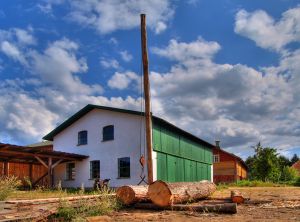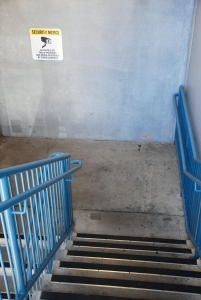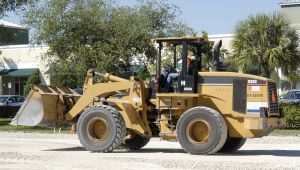Repetitive stress injury (RSI) is one of the more common on-the-job injuries we see in workers’ compensation in Boston. While repetitive stress injury can be caused by many different reasons, they are often work-related.
 A recent news article from the New York Post looks at how many baristas (coffee shop employees) tend to suffer from repetitive stress injuries. One employee featured in the article was diagnosed with medial epicondylitis, which is a type of repetitive stress injury more commonly referred to as golfer’s elbow.
A recent news article from the New York Post looks at how many baristas (coffee shop employees) tend to suffer from repetitive stress injuries. One employee featured in the article was diagnosed with medial epicondylitis, which is a type of repetitive stress injury more commonly referred to as golfer’s elbow.
This barista, however, did not get injured playing golf. Rather the repetitive lifting of heavy containers of milk injured her, as did the complex set of hand and arm motions necessary to make one of the common specialty drinks. At employee noted, in order to make an espresso, it is necessary to tamp the espresso, load it into the coffee maker, and then turn a knob. While the movements may seem easy, imagine the strain on the arm and hand caused by doing this hundreds of times a day, five or six days a week for years. Nothing in this process is ergonomic.
Continue reading
 Massachusetts Workers Compensation Lawyers Blog
Massachusetts Workers Compensation Lawyers Blog




 There was a workplace accident involving the hay wagon, and claimant was seriously injured and is now a paraplegic. His spine was crushed by the wagon. Claimant filed a civil lawsuit in state court against farmer and his daughter. Claimant also filed a lawsuit the same day with farmer and his daughter against farmer’s insurance company in which they sought a declaratory judgment claimant was covered by farmer’s General Commercial Liability insurance plan. Insurance company also sought a declaratory judgment finding claimant was not covered by the insurance policy.
There was a workplace accident involving the hay wagon, and claimant was seriously injured and is now a paraplegic. His spine was crushed by the wagon. Claimant filed a civil lawsuit in state court against farmer and his daughter. Claimant also filed a lawsuit the same day with farmer and his daughter against farmer’s insurance company in which they sought a declaratory judgment claimant was covered by farmer’s General Commercial Liability insurance plan. Insurance company also sought a declaratory judgment finding claimant was not covered by the insurance policy. In this accident, his employer was self-insured, accepted liability for workers’ compensation, and paid for all medical bills related to his rotator cuff surgery and lost wages associated with his disability rating.
In this accident, his employer was self-insured, accepted liability for workers’ compensation, and paid for all medical bills related to his rotator cuff surgery and lost wages associated with his disability rating. Her husband drove her to the hospital that day, and doctors diagnosed her with fractures in one of her fingers and the fifth metacarpal of her left hand. Intake records show she was able to walk, her main complaint was pain in her hand, and she denied any other injuries from the fall.
Her husband drove her to the hospital that day, and doctors diagnosed her with fractures in one of her fingers and the fifth metacarpal of her left hand. Intake records show she was able to walk, her main complaint was pain in her hand, and she denied any other injuries from the fall. Authorities say victim was working a Friday morning shift when he was run over by a front-loader. The accident occurred at the waste management facility just north of Route 1. After being struck, victim was not breathing and had no pulse. He died only minutes after being struck. Police declined to give more specifics about the injuries, only saying they were very serious and resulted in employee’s work-related death.
Authorities say victim was working a Friday morning shift when he was run over by a front-loader. The accident occurred at the waste management facility just north of Route 1. After being struck, victim was not breathing and had no pulse. He died only minutes after being struck. Police declined to give more specifics about the injuries, only saying they were very serious and resulted in employee’s work-related death. After reaching this settlement, plaintiff filed a wrongful death civil lawsuit against employer and obtained a default judgment in the amount of $9.525 million in damages. After the default judgment was entered, employer refused to pay the judgment. At this point, plaintiff sued employer again in state court, alleging employer breached its agreement under their liability policy. Employer had the case removed to federal court.
After reaching this settlement, plaintiff filed a wrongful death civil lawsuit against employer and obtained a default judgment in the amount of $9.525 million in damages. After the default judgment was entered, employer refused to pay the judgment. At this point, plaintiff sued employer again in state court, alleging employer breached its agreement under their liability policy. Employer had the case removed to federal court. A year later, when claimant was using a power auger to clear a kitchen sink drain in a hotel, her right glove became caught in the auger and crushed her wrist and hand. Doctors initially diagnosed claimant with a hand sprain and two finger sprains and bruises. She was eventually cleared to return to work full time, but her supervisor felt she was not physically capable of performing the work in the manner she could before the on-the-job injury.
A year later, when claimant was using a power auger to clear a kitchen sink drain in a hotel, her right glove became caught in the auger and crushed her wrist and hand. Doctors initially diagnosed claimant with a hand sprain and two finger sprains and bruises. She was eventually cleared to return to work full time, but her supervisor felt she was not physically capable of performing the work in the manner she could before the on-the-job injury.

